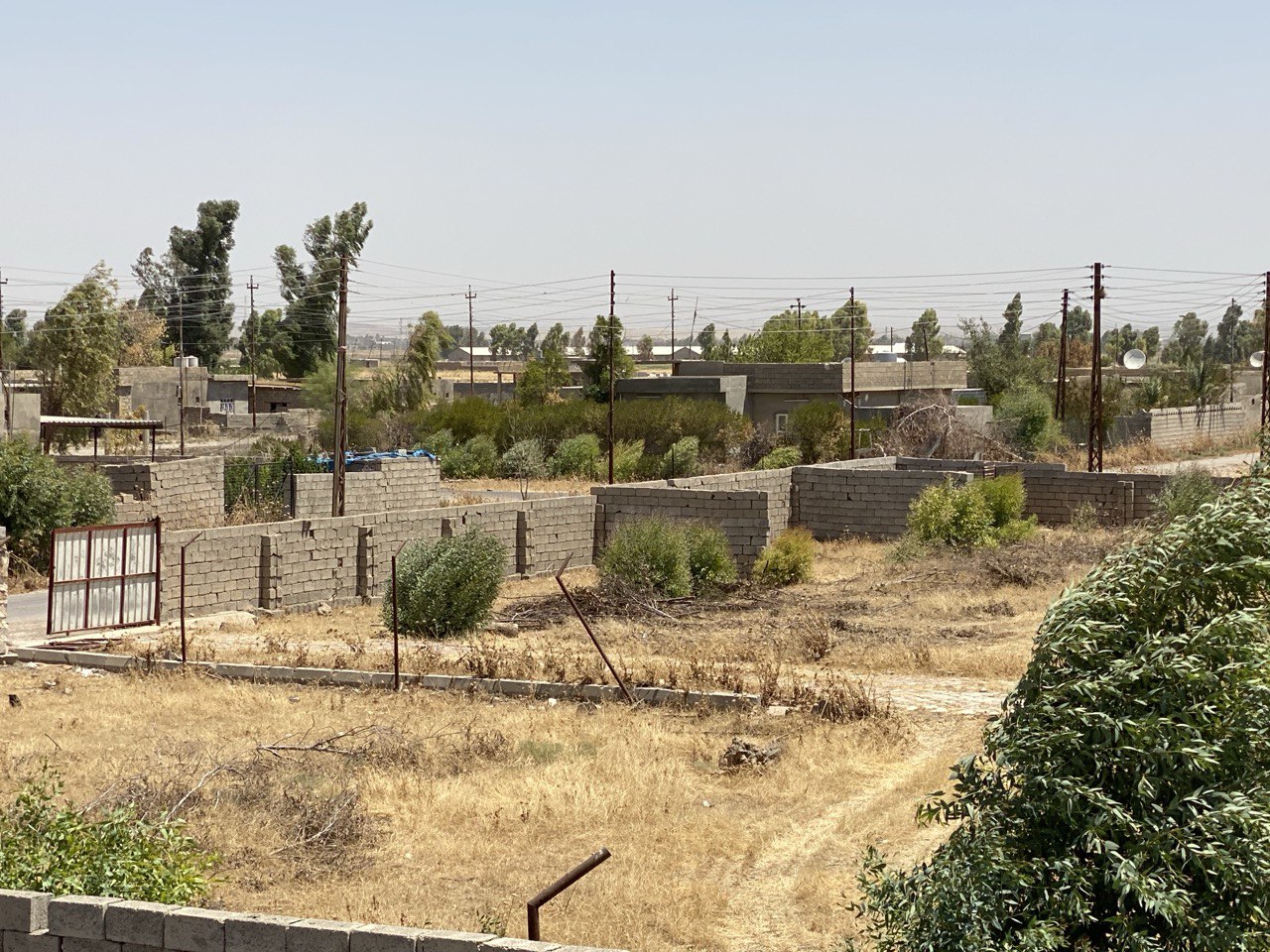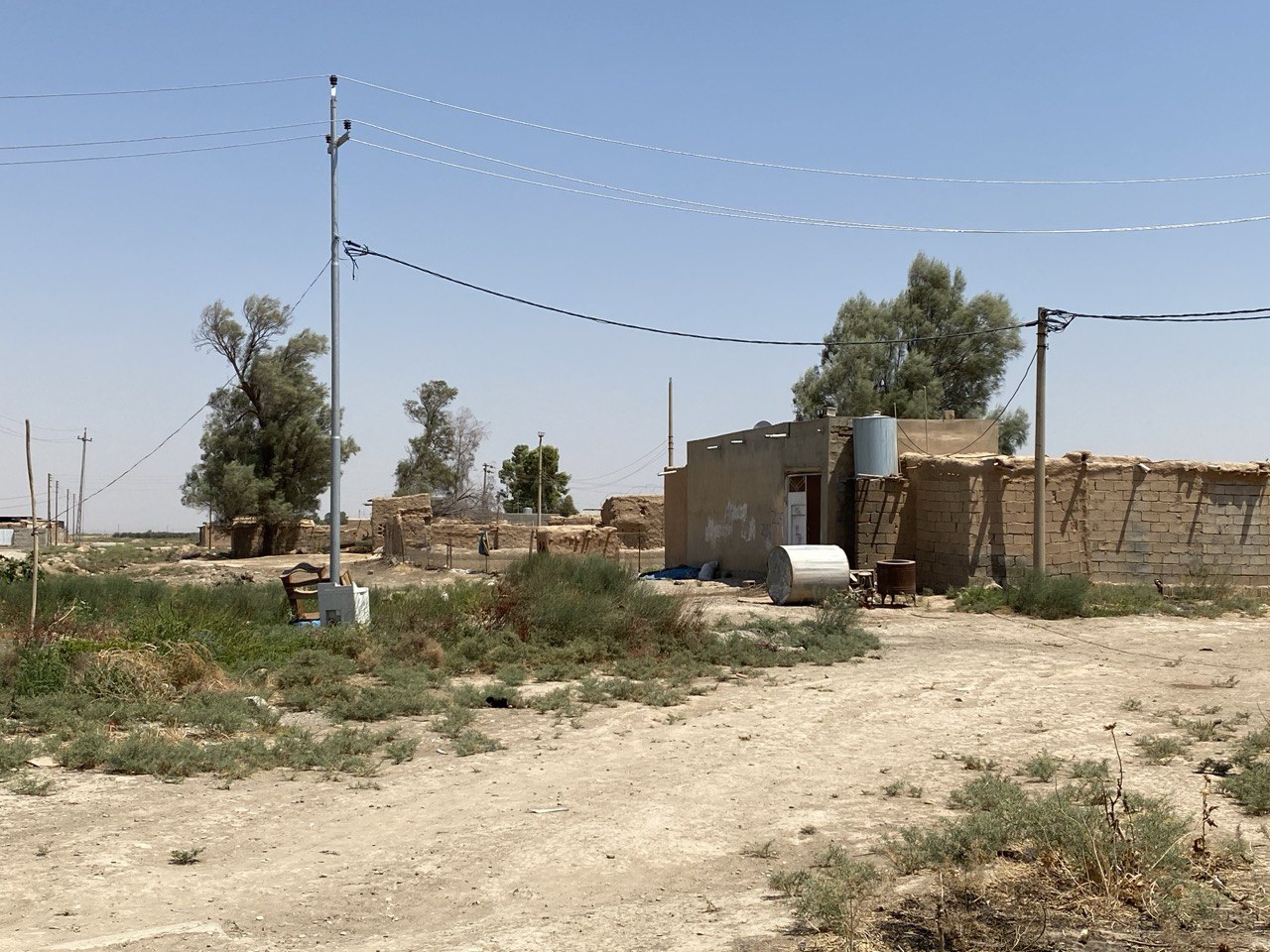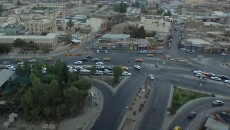Residents of several villages within the Daquq district of Kirkuk northern, oil-rich province and Tuz Khurmatu district of Salahaddin province are suffering from foul odors emanating from the factories and refineries in the area, forcing many to turn off their air conditioners despite the heat.
These villages are located near factories and oil refineries between the two districts. The residents are demanding an urgent solution to the problem of foul odors and smoke emissions, which have become a threat to their health, agricultural crops, and pastures. Karim Mohammed, a resident of Tazady village in Daquq, a village adjacent to Tuz Khurmatu, told KirkukNow, "The odors of gases from Tuz Khurmatu's factories are entering our homes. We suffer greatly. The odors worsen at night, and we are forced to turn off the air coolers because we are almost suffocating."
He noted that they feel the odors are increasing day by day. "We demand that the government address our problem."
The foul odors are bothering residents of Tazady and Kuli Tepe villages in Daquq. In Tuz Khurmatu, the odors are annoying residents of Tabat Soz and several other villages, but to a lesser extent.
Fahmi Habib, the head of Kuli Tapa village, said, "We have given up demanding services. Our biggest concern is getting rid of these odors. We are getting sick. We are forced to close the windows and turn off the air conditioners to prevent the toxic air from entering."
According to data from the Swiss air quality technology company IQAir, ninety percent of the world's population breathes polluted and unhealthy air, with Iraq's air being considered among the "most polluted."
Almost 90% of the people breathe polluted and unhealthy air, including the population of Iraq, which is among the "most polluted" in the world, according to IQ Air, a Swiss company specialized in air quality technology.
According to a study prepared by the IQ Air in 2022, Iraq ranked second in the list of countries with the highest air pollution. This study also shows that air pollution rates in Iraq has doubled in one year.
In 2021, the percentage of pollution was 49.7%, and in 2020, Iraq was ranked tenth by 39.6%, which draws attention to a previous statement by the Minister of Environment, Jassim Al-Falahi, “that pollution related to oil production is a major reason behind the high rates of cancer.”
The World Health Organization (WHO) warns that indoor and outdoor air pollution is one of the most dangerous threats to life and climate, as it leads to the premature death of seven million people worldwide annually.

The World Health Organization also warns that indoor and outdoor air pollution poses a significant threat to human life, leading to the premature death of seven million people annually.
Habib says he is aware of the dangers of air pollution and urges the government, "If you do not address the problem, it means you want the residents of these villages to be forced to evacuate their areas."
Yassin Mohammed, a member of the Salah al-Din Provincial Council and representative of the Tuz Khurmatu district called on the Salah al-Din Environment Department to form a committee to monitor the problems in these villages.
"We will investigate the factories and refineries that have become a source of foul odors at night and seek to address the problem," he told KirkukNow.
According to the global standard, the greenery in cities should not be less than 30%, but the percentage in Kirkuk province, according to the head of the Green Kurdistan Organization, Shikofa Mohammed, "does not exceed 3 percent."
There are about 200 public parks in the city of Kirkuk, a few of which are more than several donums in area, while the rest are smaller. In addition to 81 medians - one to five kilometers long – where trees are planted.
Kirkuk Province consists of four districts, its area is 9,600 square kilometers, and its population is estimated at more than 1.7 million people. Kirkuk is a disputed area between the Iraqi federal government and the Kurdistan Regional Government KRG, and its fate will be within the framework of Article 140 of the Constitution.






